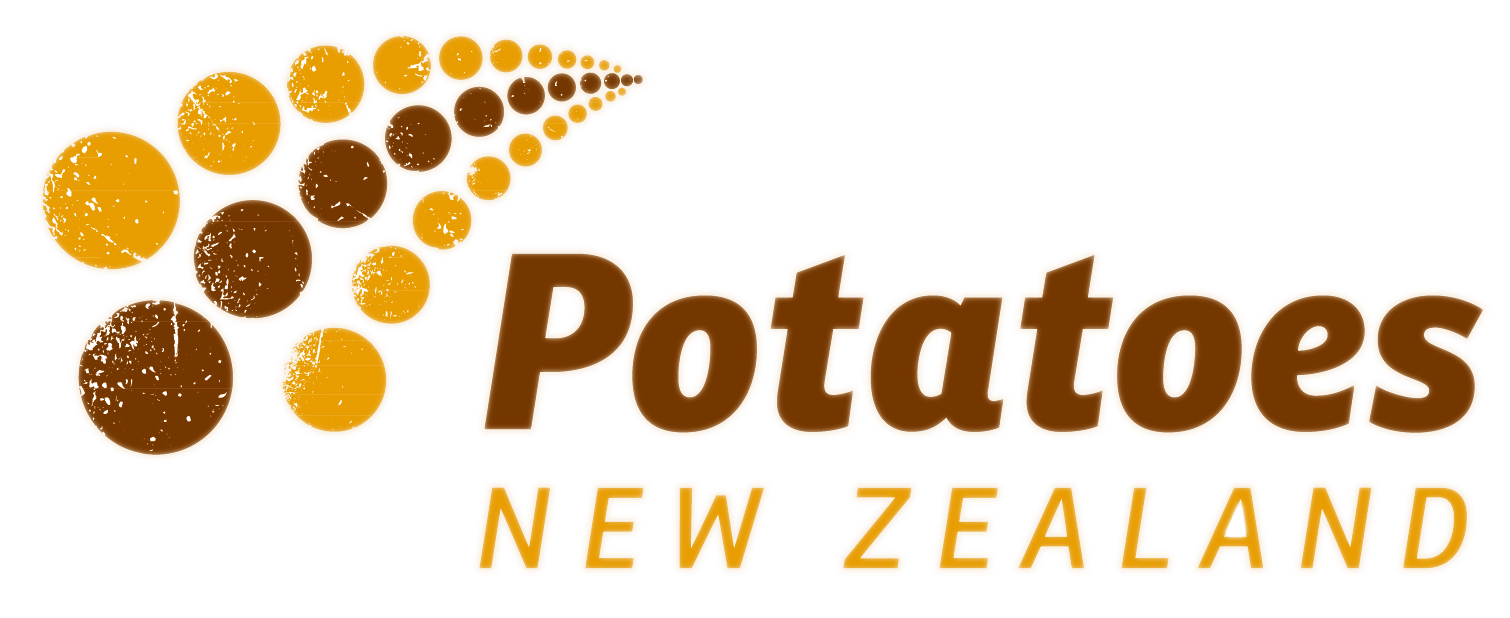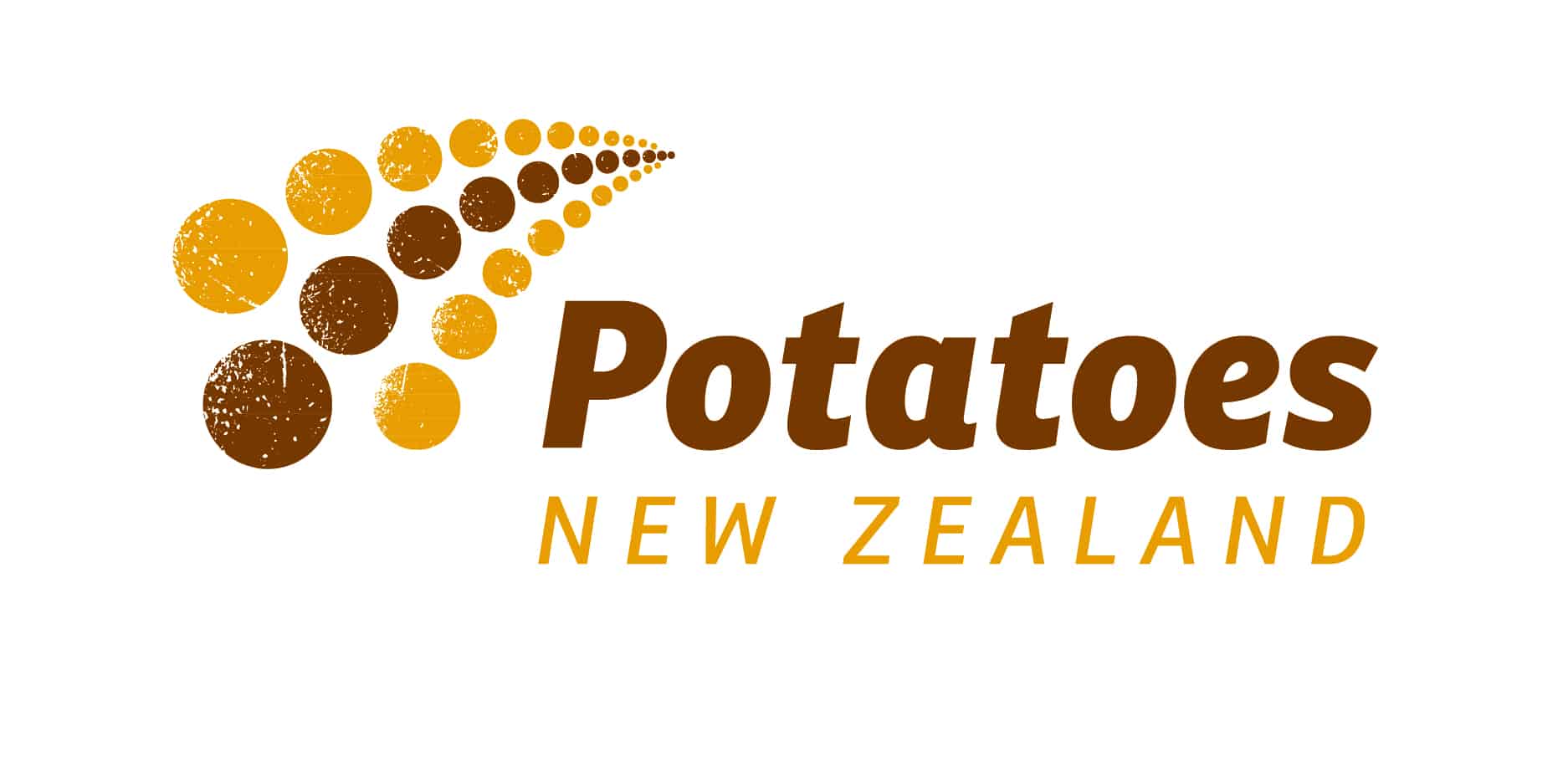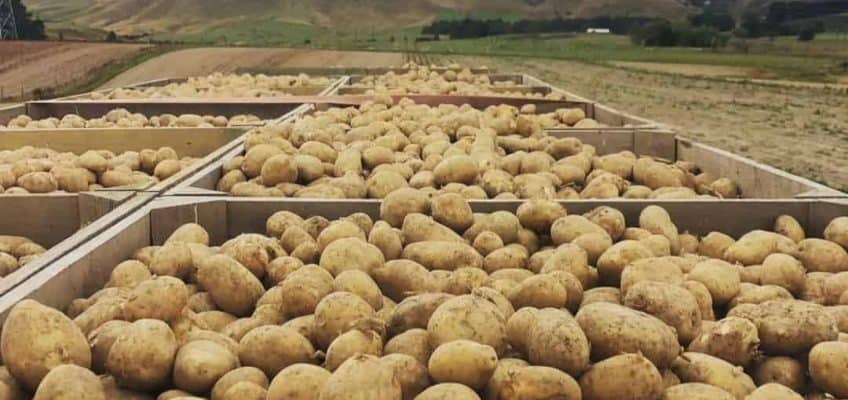By Gemma Carroll, PNZ Comms & Extension Officer.
Happy New Year!
It has been a Spring-Summer spud season of weather extremes, with either too much sudden rain or not enough. I asked around the industry to see how that has impacted quality, yields, pests and disease management.
NZ agronomists and growers in our main growing regions had the following to say about the 2022-2023 potato season.
In Canterbury
PNZ seed inspector, Cyril Hickman, along with the PNZ seed team, are tasked with looking for potato pests, disease, fungal/viral/bacterial infections and subnormal or not-true-to type plants in the potato seed crops.
Cyril is only seeing minor incidents of liberibacter so far this season, which is lower than the previous season. He admits that psyllids can still come later in the season and that the spread of liberibacter can still then affect plant health. Crop monitoring must continue and spray programmes must be responsive quickly to any detection.
The Canterbury weather has been quite favorable, with intermittent rains and most crops are under irrigation as well. There is still a bit of the Canterbury growing season to go yet and harvest won’t really kick in until around 20th January. Plants are looking similar to last season, tall and soft, but there’s not much of a downside to that.
Canterbury has experienced many cloudy days this season, so the plants are showing a very light yellowing due, to lack of photosynthesis, however this doesn’t affect plant health or yields.
The feeling at this stage in Canterbury is definitely more relaxed than our spuddies in the north.
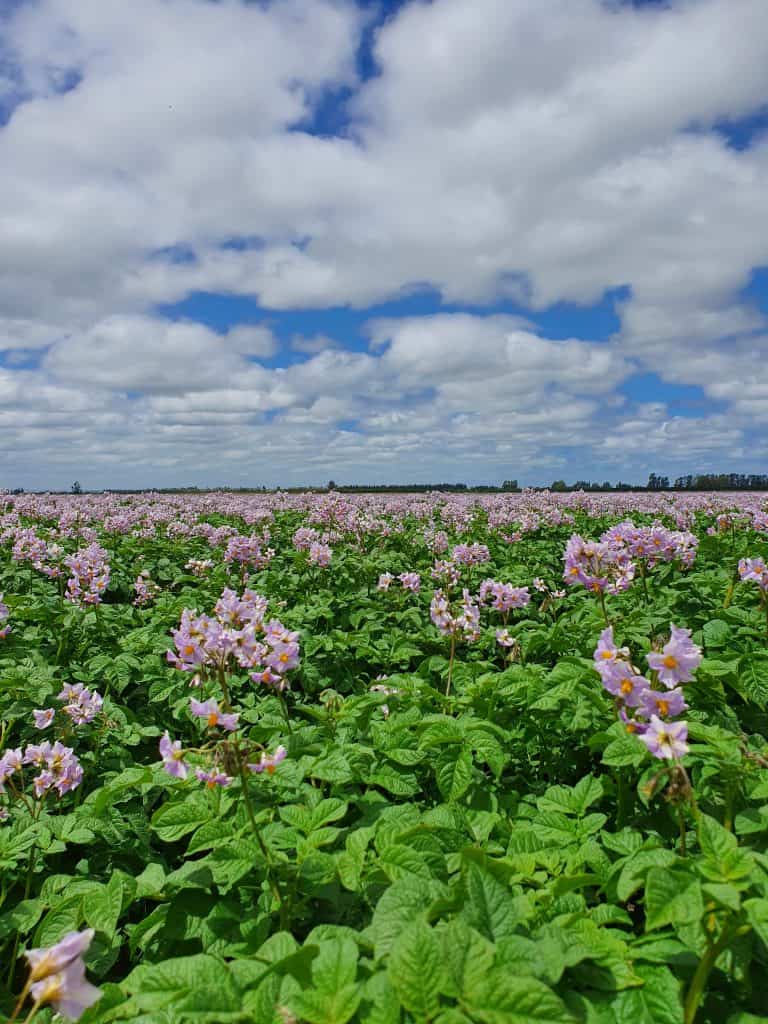
Roger Blyth, Canterbury Seed and Field agronomist, observed that even though psyllid field pressure seems low so far this season, boxthorn infestations still look very high. His colleague Nick Proudfoot warned that industry cannot become complacent about Tomato Potato Psyllid (TPP). He knew of at least one grower who had backed off his spray program because of low numbers on traps but then both nymphs and adults were soon found, in a big crop infestation.

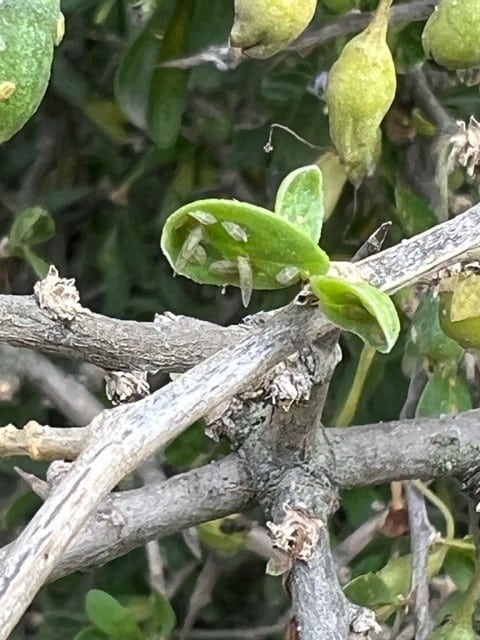
TPP are known to introduce the infection liberibacter, which then causes the tuber defect known as Zebra Chip, which results in tuber rejection at the processor end and is a big economic hit to process growers.
In Pukekohe, agronomist Daniel Sutton from Fruitfed.
So far, this season has been the total opposite to the previous spring summer season. In 2021-2022 we were so dry, that we were struggling to harvest from hard, cracked earth.
Most recently Cyclone Hale, has resulted in lower yields & quality issues. Physically managing the crop is incredibly difficult; planting, harvesting, and every aspect is under pressure.
Plant quality has been impacted by wind damage and rain. The excessively wet soils become anaerobic, which creates plant stress and disease.
Daniel guesses there may be a 20-40% crop loss due to the weather at this point in the season.
When harvesting growers are finding half the bins are just full of dirt. The clay soils are more sticky and so harvesters pick up all that in a load, which slows the process of getting to the actual potato tubers. It is far more dirt when harvesting than usual. This in turn means it takes more time and cost to harvest.
Crop loss due to pests is lower than usual due to the wet conditions. Potato Tuber Moth numbers are generally a little lower than the previous season’s, because it’s been so wet, the furrows aren’t cracking, so the moths can’t get into the ground to lay. Psyllid numbers in the region are also currently lower.
The only insects visible in the fields are White Fly and aphids, which are manageable and not a crop killer.
The region is seeing more bacterial diseases, such as potato blight, that is caused by the water mold Phytophthora infestans. Also present is early blight which is caused by the fungal pathogen Alternaria solani. The disease affects leaves, stems and tubers and can reduce yield, tuber size, storability of tubers, quality of fresh-market and processing tubers and marketability of the crop. The moist soils continue to host a bit of powdery scab as well.
Daniel says consumers can expect to see a few more scabby potatoes in store, but there is no food safety issue and if preferred they can peel it off.
There won’t be much ground storage this season due to moisture and rotting risks. If crops can be sold quickly or put in a cool store, that is preferred.
There could be an explosion of insect populations, if the region goes from warm and wet, to hot and dry, and there’s talk of another cyclone coming through, but it’s hoped this won’t coincide with the main harvest period, in Feb-Mar-Apr.
If there is any positive in this wet weather, it could be that growers are using less insecticides, but in saying that there is a need for more fungicides. In addition machinery maintenance is now a higher cost, due to sticky clay soils and more time needed to clean vehicles.
Growers aren’t saving any money because of this weather.

In Manawatu.
Grower Chris Pescini says there were delays in planting potatoes due to the wet weather last year. This meant waiting until mid-September to plant, rather than the usual July. However, the spring and summer hasn’t been too bad in terms of rain and it’s warmer than usual.
The crop quality looks good for now, with no heavy rain, just enough. In fact, they have their irrigators operating. Cyclone Hale was not a major event for the area.
Plants are looking healthy, although there are a few more psyllid numbers than usual, spray programmes are underway and monitoring is done with simple plant visual checks by the crew in the field.
Early blight is already apparent and being treated with fungicide. It is hoped that harvesting will start in February.
Economically there’s a lot of catch-up to do, to recoup losses over the last 2 years, when weather impacts and flooding, saw huge crops losses. Fertiliser costs are also “through the roof”, up by around 30%. The weather events also impact how much fertiliser is needed, especially if growers lose a crop and then have to replant.
And here’s a final inspirational shot from grower and board member Paul Olsen’s harvest… what a beautiful sight!
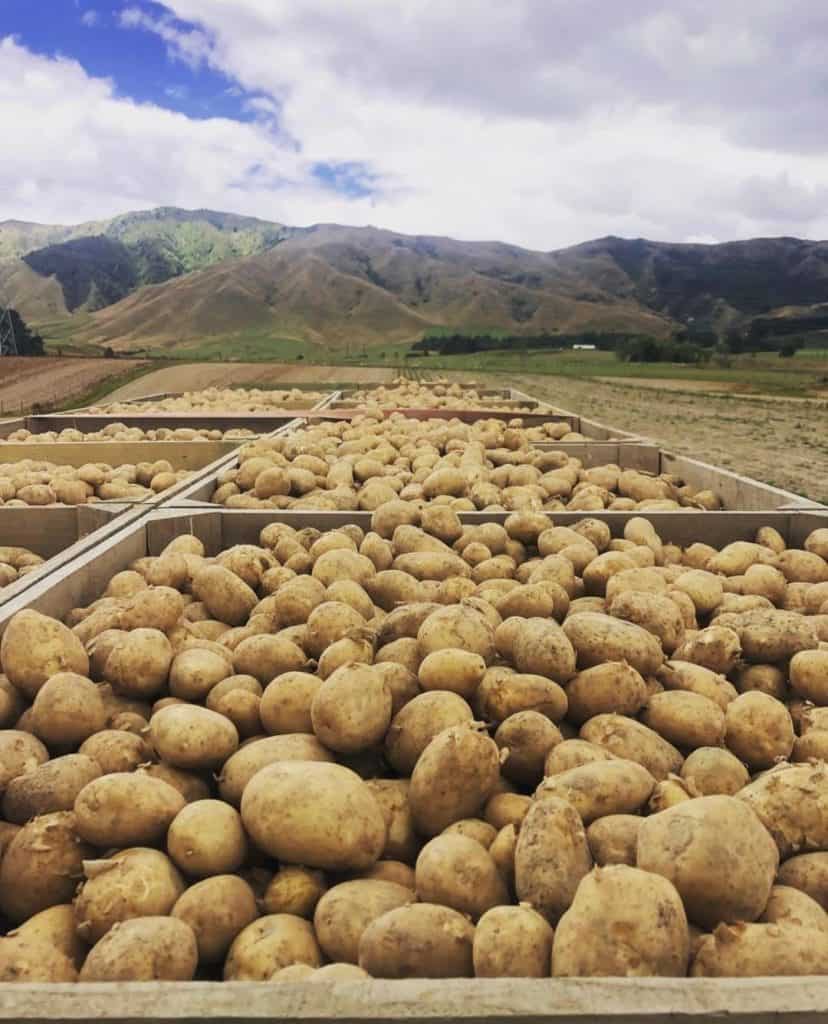
PNZ the year ahead.
The team remains focused on R&D projects and will be building on extension activities this year.
The first round of events is in late March with the PNZ R&D breakfasts. We visit Canterbury on March 28th for shared breakfast and guest speakers.
| TOPICS | Speaker |
| Onside Biosecurity | Guy Davidson |
| Sustainable Vegetable Systems | Andrew Barber |
| TPP/Canterbury Potato Liberibacter Initiative | Clive Kaiser, Kate Braidwood, Ping Koay |
| Integrated Pest Management | Paul Horne |
| Powdery Scab update | Iain Kirkwood |
| Biosecurity updates | Iain Kirkwood/ Cyril Hickman |
We then visit Pukekohe on the 30th March and cover the same topics with the addition of the Potato Tuber Moth programme updates and an opportunity for grower feedback.
You can check our events page for details and make sure to RSVP for breakfast catering.
The PNZ Winter Conference will take place in Christchurch on the 23rd & 24th August 2023. We have a draft programme which will be emailed to growers for their feedback. We want to ensure that content is relevant and stimulating for our members and other stakeholders.
You can see an overview and themed videos about our Sustainable Vegetable Systems programme on our YouTube channel https://www.youtube.com/@potatoesnewzealandinc.8524/videos
We also encourage you to watch our Sustainability Champion, Canterbury grower Robin Oakley, in the AgMatters Greenhouse Gas video https://www.agmatters.nz/case-studies/robin-oakley/
The PNZ 2022 Annual report can be found on our website https://potatoesnz.co.nz/administration/annual-reports/
We continue to be led by grower feedback and our board. Please contact us at any time on 0800 399 674.
